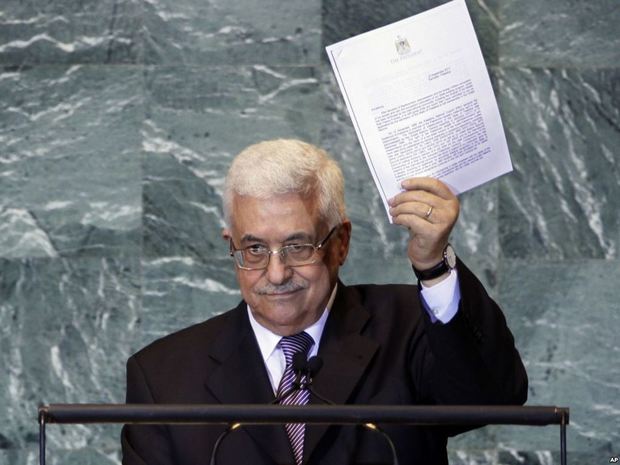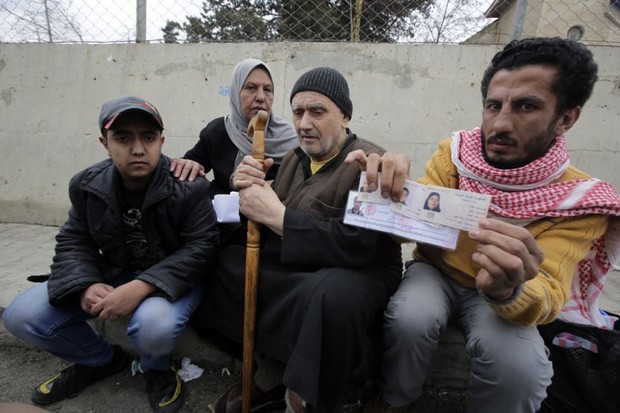‘Israel will not accept a passport with the name of Palestine, as it does not recognize its existence’
A journalist Nadezhda Kevorkova – about the right of the Palestinians to the state passport
Recently, the Palestinian President Mahmoud Abbas has warned Israel that by the end of 2016 the residents of partially recognized state will receive the first Palestinian passports. The initiative has been met with sharp criticism in the Israeli media. A well-known journalist Nadezhda Kevorkova, who has worked in the Middle East and knows about the Palestinian-Israeli relations first-hand, in the column of Realnoe Vremya tells about the way of the Palestinians to this step and what it means for the country.
Passport to the homeland
The head of Palestine Mahmoud Abbas has announced that by the end of 2016 the Palestinians will have new passports – the documents of the state of Palestine. Israeli media, as they could, have outlined the futility of the venture and all the obstacles that the Palestinians will face if they decide to use these passports.
There is no denying the truth: today you can't come, sail or fly to Palestine. All entry points are controlled by Israel. They will not accept passports with the name of Palestine, as it does not recognize its existence.
From the point of view of Abbas, the initiative is logical, as since 2012, Palestine (along with the Palestine Liberation Organization) is an observer in the UN and a member of UNESCO. In 2014, 135 out of 193 countries recognized it.
None of the Palestinians still has a document on which it would be written 'Palestine' and 'Palestinian'. Such document did exist, while the British mandate was valid, i.e. from 1922. But in 1948, when the mandate expired and Israel was formed, documents with the words 'Palestine' were revoked.
'Palestinian spirit is determined not by a passport'
The Palestinians are divided into different groups by their legal position. None of them have full-fledged, from the point of view of the bureaucracy, Palestinian document.
The Palestinian spirit is determined not by a passport. There are those who is a native resident of Gaza, the West Bank, Jerusalem. There are those who live on Palestinian land, but is a refugee. There are those who is a refugee or a citizen on the territory of Israel, which Palestinians consider occupied.
A huge number of refugees inhabit the neighbouring countries of Lebanon, Syria, Jordan. Previously, the Palestinians used to be many in Iraq.

The refugee situation is different everywhere. But it can be considered normal nowhere. Israel denies the right of refugees to return, whatever documents they might have had.
From the expulsion in 1948, Palestinians tried not to take any citizenship. Many people had a 'Nansen passport' — a special document, which Fridtjof Nansen invented and integrated for the refugees from Russia after the revolution in 1917. However, not all countries recognized it and not all gave the right to education, medical treatment and stay.
So, the Palestinians are forced to have some other documents. At the same time, most people keep papers identifying their Palestinian origin, documents on land and houses, often destroyed and populated by other aliens. Palestinian women try to have a baby on the territory of Palestine – otherwise, a child will be deprived of the right to visit Palestine.
Israel prevents refugees and descendants of refugees to see the country even as tourists.
Pitfalls
The news about Palestinian passports has many pitfalls. There is a Palestinian Authority passport. It is a beautiful document that is nowhere to present. The thing is that with the current passport of the Palestinian Authority, none of the Palestinians can go anywhere.
The document itself is valid only under the condition that it is accompanied by Israeli identity cards (ID). This strange rule also applies to the residents of the West Bank, the Gaza Strip, and the inhabitants of Jerusalem, who are actually considered to be the citizens of Palestine.
But a Palestinian can't go with Israeli identity as well. But without an Israeli ID they cannot enter the airport.
For travels, (for each trip they need to obtain a special permit in Israel, and it is not necessarily that they will obtain it, but having obtained, it is not necessarily that they will be able to return), they take a special Israeli red passport.

But it is also not easy. That red passport denotes the nationality 'Jordanian'. Since in Israel there is no word 'Palestinian', there is no Palestine and no such people. The flag of Palestine is prohibited in Israel.
It is interesting that with these documents for the Palestinians the way to Lebanon is closed. But in Jordan, a Palestinian is deprived of documents, if he or she has a Palestinian passport.
Many Palestinians are trying to obtain a passport of Jordan – it is easier to travel and people are more secured. Although it does not guarantee to the exit and departure.
What to expect from the Third Intifada?
Palestine was proclaimed on 15 November of 1988 in Algiers. At the same time, the First Palestinian uprising began – intifada.
The intifada led to the fact that Israel agreed that the PLO and Yasser Arafat received the right to return to Palestine and settle there. The headquarters of the PLO were in Gaza, then moved to Ramallah in the West Bank.
In 2000, the Second Intifada began –Israel had to withdraw its settlements from the Gaza Strip.
In the summer of 2015, the Third Intifada has started. Will the Palestinians achieve something more than a new passport?
Reference
Nadezhda Kevorkova is a Russian journalist.
- She has worked as a reporter in Egypt, Sudan, Palestine, Jordan, Lebanon, Syria, Iraq, Iran, Pakistan, Azerbaijan, Ukraine, Hungary, Greece, Turkey, Cuba, and in the republics of the North Caucasus, Tatarstan, and in the Far East.
- In 1998, a special correspondent of Nezavisimaya Gazeta in the USA.
- In 2001, after an invitation from US State Department, Kevorkova visited a number of states, including Alaska.
- In 2008, As a correspondent of 'Gazeta' she reported from Indian settlements in the US.
- As a war correspondent, she covered the Arab Spring, military and religious conflicts, and the anti-globalization movement. She covered the 'Gaza Freedom Flotilla' in 2008, 2010 and 2011; she also visited Gaza several times during the blockade.
- In 2010, Kevorkova was nominated for the 'International Women of Courage' award.
- She has worked at RT since 2010, before which she was a special correspondent for Novaya gazeta, Nezavisimaya gazeta, and Gazeta. She is the author of the articles in Gazeta, Ogonek, Russian Newsweek and other media.